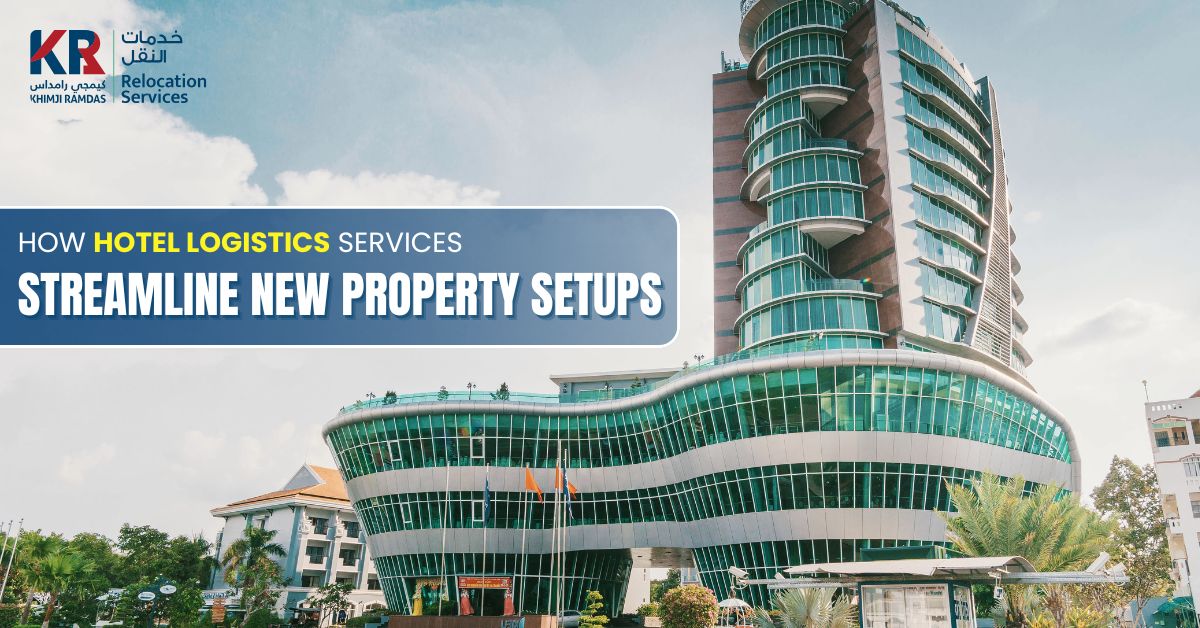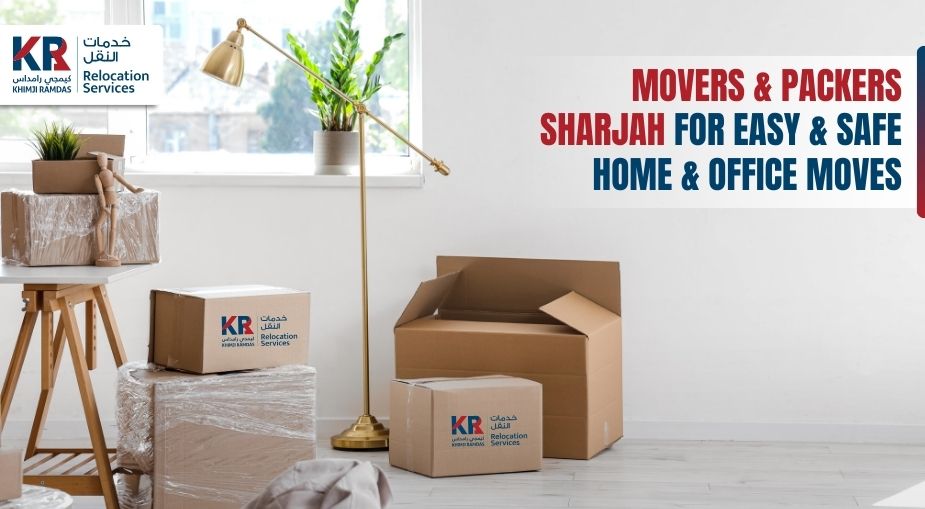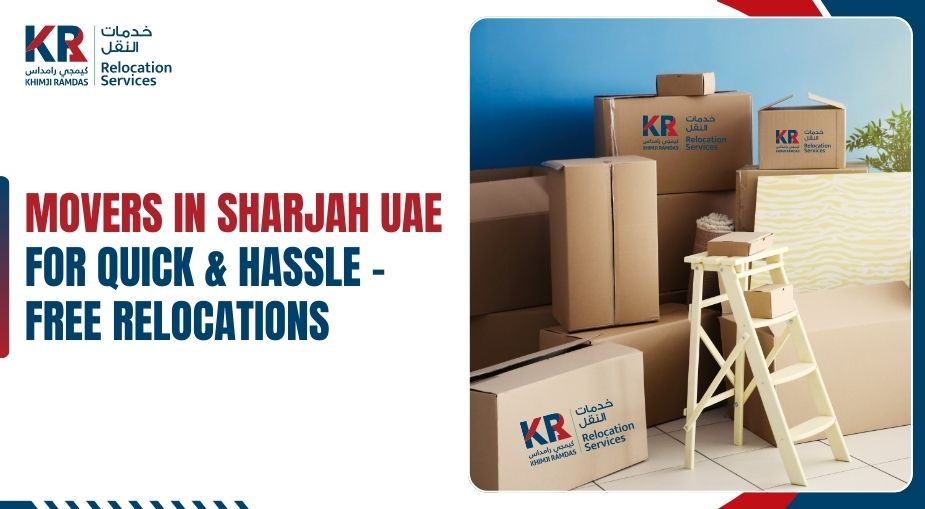How Hotel Logistics Services Streamline New Property Setups

Hotel logistics is the invisible engine that ensures a new property opens on time, fully furnished, and ready to welcome its first guests. Behind every polished lobby and every perfectly arranged guest room lies months of planning, coordination, and movement of goods. Without a clear logistics strategy, even the most thoughtfully designed property can stumble into costly delays and inconsistent guest experiences.
When a new hotel is being developed, thousands of individual items must move seamlessly from suppliers around the world to the final property site. From furniture, fixtures, and equipment (FF&E) to operating supplies and equipment (OS&E), every detail must arrive in the right sequence, at the right time, and in flawless condition. This is where specialized hotel logistics management becomes indispensable.
In hospitality, the ability to move goods is not just about trucks, warehouses, and customs clearance. It is about orchestrating people, processes, and technology into one continuous flow that keeps projects on track. Hospitality logistics companies bring expertise in areas such as inventory control, project warehousing, and last-mile installation to ensure hotel teams are never left scrambling for missing or damaged items during the final countdown to opening.
The logistics in hotel industry settings also have unique challenges. Properties in dynamic locations like Dubai, Sharjah, and Abu Dhabi face fast timelines, strict building regulations, and global sourcing complexities. This requires a logistics partner that combines international capabilities with deep local knowledge. Khimji Ramdas Relocation Services provides precisely this balance, offering end-to-end hospitality logistics support that allows developers, operators, and owners to focus on brand standards and guest experience instead of operational roadblocks.
By the time a new property opens its doors, a silent but powerful process has already been at work. Understanding this process—and how it makes or breaks the success of a hotel opening—is the first step to building confidence in the journey from blueprint to guest-ready experience.
Hotel Logistics: The Backbone of Fast, Flawless Pre-Openings
Hotel logistics is more than just the transportation of goods. It is the framework that connects procurement, shipping, warehousing, and final installation into one synchronized effort. Every step matters because a single delay can cascade across multiple project milestones, potentially pushing back the official opening date. This section explores why hotel logistics sits at the heart of pre-opening success and how its role extends far beyond basic supply chain activities.
Defining Hotel Logistics in Context
Hotel logistics management encompasses the planning and execution of moving thousands of FF&E and OS&E items from various global suppliers into one cohesive system. From luxury mattresses and guestroom furniture to cutlery, linens, and back-office equipment, every item is tracked, consolidated, and routed to arrive exactly when needed. Without this structure, items can pile up unsafely on site, damage can go unnoticed until too late, or key rooms may remain incomplete when inspection day arrives.
Hospitality logistics companies specialize in mapping the flow of these goods from supplier factories through ports, customs, and warehouses before carefully staging them for delivery to the property. They ensure that brand standards are protected at every step, and that expensive assets arrive intact and ready for installation. Unlike general supply chain services, logistics in hotel industry operations must be finely tuned to the realities of large-scale property setups where deadlines are non-negotiable and every misplaced carton can have a direct financial impact.
Why Hotel Logistics Shapes Guest Experience
What guests see on opening day is the result of months of behind-the-scenes logistics work. If a hotel opens with incomplete rooms, mismatched furniture, or unavailable amenities, the reputation of the property suffers immediately. Hotel logistics prevents such outcomes by guaranteeing precision, timeliness, and accountability across all moving parts.
At its best, this process delivers more than just goods. It delivers peace of mind to owners, confidence to operations teams, and a flawless experience to the very first guest who walks through the lobby doors. In markets like Dubai, Sharjah, and Abu Dhabi, where competition is high and expectations even higher, the efficiency of hotel logistics is what allows new properties to meet global standards from day one.
From Blueprint to Doors Open: The Pre-Opening Logistics Roadmap
Hotel logistics does not begin when the first truck arrives at the site. It starts months earlier, at the blueprint stage, where planning and coordination shape the entire project’s success. A well-defined roadmap ensures that everything from large-scale furniture shipments to small operating supplies fits seamlessly into the master schedule.
This roadmap provides clarity for contractors, project managers, and suppliers. When executed effectively, hotel logistics management turns an overwhelming flow of goods into a structured sequence of tasks that align with construction, design, and brand deadlines.
Building the Critical Path
A pre-opening project cannot rely on guesswork. Every delivery, installation, and inspection must be aligned with the critical path. This approach highlights dependencies—such as needing flooring completed before furniture can be installed—and ensures that delays in one area do not ripple across the entire project. Hotel logistics maps this sequence carefully so procurement schedules, inbound freight, and site readiness all converge at the right time.
For example, bulk shipments of FF&E are timed to arrive at secure warehouses rather than congesting the property site prematurely. Once the construction stage clears specific floors, deliveries are scheduled to move in stages, ensuring materials reach the rooms in the correct order. By structuring the project flow, logistics in hotel industry settings reduces last-minute chaos and ensures smoother coordination among multiple contractors.
Governance That Keeps Projects Moving
Beyond planning, governance ensures that the project never drifts off track. Clear communication channels between suppliers, logistics providers, and property managers prevent bottlenecks before they escalate. Hospitality logistics companies bring structured governance models that define responsibilities for every stakeholder.
Daily progress reviews, strict delivery calendars, and reporting dashboards provide constant visibility to management teams. This prevents costly surprises and ensures stakeholders are updated in real time. In regions like Dubai, Sharjah, and Abu Dhabi, where multiple regulatory and site-specific approvals are required, governance within hotel logistics is what ensures deadlines are met without unnecessary delays.
FF&E vs. OS&E: Two Streams, One Plan
A hotel’s setup relies on two parallel streams: furniture, fixtures, and equipment (FF&E) and operating supplies and equipment (OS&E). While they seem similar, they require different planning, handling, and delivery approaches. Hotel logistics integrates both streams into one cohesive plan, ensuring they complement rather than conflict with each other.
When these flows are not coordinated, the result can be incomplete rooms, cluttered hallways, and delays in final inspections. With the right hotel logistics management framework, these streams are synchronized to create a smooth, step-by-step rollout across every floor of the property.
Why FF&E Requires Precision Handling
FF&E items are large, high-value, and often custom-made. From lobby chandeliers and restaurant furniture to guestroom beds and wardrobes, these pieces demand careful handling and precise delivery schedules. Hotel logistics ensures they are warehoused securely, protected from damage, and delivered only when site conditions are ready.
Hospitality logistics companies often use staging warehouses where FF&E is consolidated and inspected before being moved to the property. By sequencing deliveries floor by floor, they minimize congestion and reduce the risk of damage during installation. Logistics in hotel industry projects depends heavily on this accuracy, as a single damaged piece can stall the completion of an entire floor.
Why OS&E Needs Agile Coordination
OS&E includes the everyday items that make a hotel operational, such as linens, cutlery, glassware, and housekeeping tools. Unlike FF&E, these items are smaller, often sourced from multiple vendors, and arrive in much larger volumes. Hotel logistics handles OS&E by consolidating these shipments, repackaging them into room-wise or floor-wise kits, and scheduling their arrival just before operational staff move in.
This process prevents overloading storage areas at the property and ensures every room receives its full set of supplies without confusion. By using detailed inventory tracking, hotel logistics management guarantees that nothing is missed, whether it is a single pillowcase or an entire batch of minibar items.
Synchronizing FF&E and OS&E
The real challenge lies in blending the two streams into one master schedule. FF&E may need to be installed weeks before OS&E arrives, but both must align with construction progress and inspection timelines. Hotel logistics builds this synchronization by sequencing deliveries, planning buffer periods, and coordinating with site managers to avoid overlap.
In markets like Dubai, Sharjah, and Abu Dhabi, where hotel openings often run on strict deadlines, the ability to unify these streams makes the difference between a smooth launch and a costly delay. Hospitality logistics companies that excel in synchronization give developers the confidence that every room will be guest-ready on opening day.
Warehousing & Inventory Control Built for Hotels
Hotel logistics depends heavily on well-planned warehousing and disciplined inventory management. Without a centralized hub to receive, inspect, and store shipments, a property setup quickly becomes chaotic. The warehouse acts as the bridge between global suppliers and the final property site, ensuring goods arrive in order and in perfect condition.
A hotel project involves thousands of items arriving from different vendors at different times. Without effective hotel logistics management, it is nearly impossible to track what has arrived, what is delayed, and what needs immediate attention. That is why hospitality logistics companies design project-specific warehousing systems that go far beyond simple storage.
The Role of Specialized Warehouses
Unlike general distribution facilities, warehouses used for hotel logistics are designed to handle FF&E and OS&E efficiently. They include staging areas for large furniture, climate-controlled zones for delicate items, and kitting sections where operating supplies are grouped together. By creating purpose-built spaces, logistics in hotel industry projects avoid costly damages and maintain a clear flow from receiving dock to property delivery.
Every item is barcoded and scanned into a warehouse management system. This ensures complete visibility for project managers and prevents misplaced inventory. In markets such as Dubai, Sharjah, and Abu Dhabi, where projects move quickly, this level of precision is essential for meeting opening deadlines.
Kitting That Speeds Rooms to Ready
One of the most powerful methods in hotel logistics is kitting. Instead of sending bulk cartons to the property, items are reorganized into kits that contain everything needed for a single room or floor. A typical kit may include all linens, toiletries, and equipment required for a guestroom, packed together and delivered as one unit.
This approach eliminates confusion at the site and reduces time spent unpacking, sorting, and moving goods between floors. Hotel logistics management teams use kitting to transform what would be hundreds of touchpoints into a streamlined, room-by-room process. The result is faster room completion and reduced clutter on site.
Inventory Accuracy as a Project Lifeline
Accuracy in inventory is more than just numbers—it directly determines whether the property will open on time. A missing shipment of mattresses or an incomplete set of kitchen equipment can hold up entire sections of the hotel. Hospitality logistics companies ensure inventory accuracy through real-time updates, cycle counts, and transparent reporting.
By integrating advanced systems, hotel logistics creates a single source of truth that all stakeholders can rely on. This allows owners, operators, and contractors to make informed decisions without second-guessing what has been delivered or what is still pending.
First Mile to Room 101: White-Glove Delivery & Installation
Hotel logistics reaches its most critical stage when goods leave the warehouse and move into the property itself. This is the moment where careful planning must translate into flawless execution. Every carton, crate, and piece of furniture must be delivered to the right floor, installed in the right room, and inspected before handover.
The complexity here is high. Elevators must be booked, corridors protected, and quiet hours respected to avoid disturbing ongoing construction or neighboring facilities. Without experienced hotel logistics management, this stage can turn into delays, damages, and frustration for project teams.
Planning the Final Mile
The final mile in hotel logistics is not just about moving items from warehouse to property. It requires meticulous planning that accounts for access restrictions, delivery sequencing, and coordination with multiple contractors on site. Hospitality logistics companies often map delivery routes inside the building, ensuring that large pieces of furniture reach upper floors without damaging finished surfaces.
In locations such as Dubai, Sharjah, and Abu Dhabi, strict building rules and safety regulations make this planning even more vital. Hotel logistics teams factor in site access permits, parking restrictions, and health and safety compliance to ensure seamless execution.
Installation with Precision
Delivery is only half the job. Installation is where hotel logistics management proves its value. Beds must be assembled, artwork must be mounted, and furniture must be placed exactly according to design specifications. Even small deviations from the plan can affect brand standards and guest experience.
Trained installation crews handle these tasks with a white-glove approach, protecting every surface and ensuring quality at every step. This prevents damage to expensive assets and creates consistency across hundreds of rooms. Logistics in hotel industry operations depends on such precision to deliver a property that meets both functional and aesthetic requirements.
Snag-Free Handover
The final stage of installation involves thorough inspection and snag clearance. Hotel logistics does not end until every piece of furniture, fixture, and equipment has been checked, photographed, and documented for approval. This process ensures accountability and allows for quick replacement of any missing or damaged items.
By handing over rooms in guest-ready condition, hospitality logistics companies provide owners and operators with peace of mind. For properties in the UAE’s competitive hospitality market, where reputation starts on day one, this level of precision is essential. Hotel logistics makes sure that when the first guest arrives, every detail is in place, and every room reflects the brand promise.
Customs, Permits & Compliance in the UAE
Hotel logistics in the United Arab Emirates comes with its own unique set of challenges. Unlike routine supply chains, hospitality projects often involve large volumes of international shipments, specialized equipment, and time-sensitive schedules. Clearing these goods through customs while meeting municipal and site-specific requirements in Dubai, Sharjah, and Abu Dhabi requires deep expertise and meticulous planning.
When hotel logistics management is handled poorly, delays at ports, unexpected duties, or missing permits can hold up entire shipments of FF&E and OS&E. These setbacks directly impact construction timelines and increase overall costs. Hospitality logistics companies with local knowledge are able to anticipate regulatory hurdles and secure necessary approvals long before goods arrive.
Clearing International Shipments Smoothly
Every hotel project sources from a wide network of global suppliers. This means items as diverse as Italian furniture, Asian textiles, or American kitchen equipment all converge at UAE ports. Hotel logistics ensures that shipping documents, product classifications, and import codes are accurate to avoid fines or demurrage fees.
Working with customs brokers who specialize in logistics in hotel industry operations allows projects to move quickly through clearance procedures. In markets where opening dates are fixed and highly publicized, efficiency at this stage makes the difference between staying on schedule or facing costly postponements.
Aligning with Local Approvals
Beyond customs, hotel logistics must also account for municipality rules, building management restrictions, and health and safety regulations. Each emirate—Dubai, Sharjah, and Abu Dhabi—has its own set of permit requirements covering site access, parking zones, delivery hours, and waste disposal. Hotel logistics management integrates these approvals into the master schedule, ensuring trucks arrive on site only when fully compliant.
Hospitality logistics companies that understand local regulations provide reassurance to project owners. By proactively handling these steps, they eliminate last-minute obstacles and create a seamless flow from port to property.
Site Safety and Compliance Standards
Compliance extends into the property itself. Before crews can unload and install items, site safety measures must be followed. Hotel logistics includes health and safety inductions, personal protective equipment checks, and traffic control within the property. These measures not only meet legal obligations but also safeguard workers and valuable hotel assets.
By embedding compliance into every stage, hotel logistics management ensures projects in the UAE meet both regulatory standards and brand expectations without compromise.
Tech That Delivers Visibility: From PO to Pillow
Hotel logistics has evolved far beyond manual tracking and paper records. Today, technology plays a central role in providing visibility, accuracy, and control over complex pre-opening projects. With so many moving parts, digital tools ensure that everyone—from suppliers to project managers—can monitor progress in real time.
In large-scale projects, traditional methods of communication often lead to delays, duplication of effort, or confusion. Hotel logistics management powered by modern technology eliminates these risks by creating one unified platform where stakeholders track shipments, inventory, and installation status.
Digital Platforms for Transparency
Modern hospitality logistics companies use digital dashboards that consolidate all logistics data. Purchase orders, shipment statuses, customs clearances, warehouse counts, and installation progress are all displayed in one place. This eliminates the guesswork and reduces the endless phone calls and emails that often slow down logistics in hotel industry projects.
The ability to log in and see exactly where a shipment is or how many rooms are completed allows decision-makers to act quickly. For properties in Dubai, Sharjah, and Abu Dhabi, where projects operate under tight deadlines, this level of transparency is invaluable.
Mobile Scanning and Real-Time Updates
Technology also extends to the warehouse and property site. Hotel logistics teams now use handheld scanners and mobile applications to update inventory and installation status instantly. Every item scanned generates a digital footprint, ensuring accountability and reducing the risk of misplaced goods.
By using real-time updates, hotel logistics management ensures that all stakeholders—from warehouse supervisors to property managers—are aligned. This accuracy reduces delays, prevents duplication, and keeps projects on budget.
Data That Drives Faster Decisions
The real power of technology in hotel logistics lies in its ability to provide actionable insights. Exception alerts highlight delayed shipments, variance reports flag missing items, and photographic proof documents completed installations. With this data at hand, managers can correct issues immediately instead of waiting until they escalate.
Hospitality logistics companies leveraging advanced technology transform hotel openings from uncertain processes into predictable, well-controlled projects. For new properties in the UAE, this data-driven approach means a smoother path from purchase order to pillow, ensuring every room is guest-ready exactly on time.
Risk, Sustainability & Reverse Logistics
Every large-scale hospitality project carries risks. With so many moving parts, even the smallest disruption can cause cascading delays. Hotel logistics is designed to identify, manage, and mitigate these risks before they threaten the opening timeline. Beyond risk control, modern projects also place equal emphasis on sustainability and the efficient handling of returns or surplus goods, known as reverse logistics.
By integrating proactive planning with eco-conscious practices, hotel logistics management ensures projects not only stay on track but also align with global sustainability goals. Hospitality logistics companies that combine risk resilience with sustainable strategies create long-term value for both owners and operators.
Common Risks and How to Control Them
Hotel projects face a range of risks, from delayed supplier shipments to damaged goods in transit. Without structured hotel logistics, these problems can escalate, leaving entire sections of a property incomplete. To prevent this, logistics partners develop contingency plans, schedule buffers, and rapid replacement channels.
By embedding these measures into the critical path, hotel logistics management keeps projects resilient against unexpected disruptions. In fast-paced markets like Dubai, Sharjah, and Abu Dhabi, this preparation ensures that opening deadlines remain achievable, even when challenges arise.
Sustainability in Hotel Logistics
Sustainability is no longer optional—it is an expectation. Logistics in hotel industry operations now prioritize eco-friendly practices, such as reducing packaging waste, recycling delivery materials, and sourcing reusable protective covers for FF&E items. Hotel logistics also focuses on efficient transportation routes to cut down on fuel usage and carbon emissions.
By adopting these measures, hospitality logistics companies demonstrate environmental responsibility while also reducing costs. For hotel owners, this not only supports sustainability goals but also strengthens brand reputation among eco-conscious guests.
The Importance of Reverse Logistics
Not all goods received are used immediately, and some items may arrive defective or in surplus. Hotel logistics addresses this through reverse logistics, which manages returns, exchanges, and redistribution of goods. A structured reverse flow ensures items do not pile up on-site or in warehouses, disrupting the project schedule.
By streamlining reverse logistics, hotel logistics management prevents unnecessary storage costs and ensures resources are used efficiently. This creates a cleaner, more organized project environment and reduces wastage in the overall process.
Budget & Timeline Control That Stakeholders Trust
Large hospitality projects run on strict financial and time commitments. Hotel logistics plays a critical role in keeping both under control, ensuring projects remain predictable and stakeholders maintain confidence. Every shipment, warehouse cost, and installation task has a direct impact on the overall budget and opening date.
When hotel logistics management is executed effectively, costs are tracked, timelines are monitored, and deviations are corrected before they spiral out of control. This discipline creates trust among owners, investors, and operators who depend on precise reporting and measurable results.
Controlling Costs Through Visibility
Hotel logistics creates financial clarity by tying costs to logistics milestones. For example, landed costs of goods, warehouse handling fees, and delivery charges are tracked in real time. This level of transparency allows stakeholders to forecast expenses accurately and avoid unpleasant surprises.
Hospitality logistics companies also integrate cost control into procurement and shipping stages, ensuring the project budget aligns with the agreed critical path. In competitive markets such as Dubai, Sharjah, and Abu Dhabi, cost visibility is crucial for maintaining profitability while delivering projects on schedule.
Timelines Built on Discipline
Deadlines in hotel openings are rarely flexible. A single delay can disrupt marketing campaigns, staff onboarding, and guest bookings. Hotel logistics maintains strict adherence to timelines by sequencing tasks, monitoring progress daily, and creating accountability across all teams involved.
By combining precise scheduling with proactive reporting, hotel logistics management prevents slippages. Real-time visibility into where shipments and installations stand allows managers to make immediate corrections. This discipline ensures that every floor, every room, and every facility is completed on time.
Using KPIs to Measure Success
The effectiveness of hotel logistics is best judged through measurable outcomes. Key performance indicators such as on-time delivery rates, inventory accuracy, damage ratios, and daily installation progress provide objective insights into project health. Logistics in hotel industry operations uses these KPIs to maintain accountability and drive continuous improvement.
For property developers and hotel operators, these metrics provide assurance that both budget and timeline are being managed effectively. By combining data-driven reporting with transparent communication, hospitality logistics companies give stakeholders the confidence that their investments are being protected.
Choosing Hospitality Logistics Companies (and What to Ask)
Selecting the right partner for hotel logistics can determine whether a project runs smoothly or suffers costly setbacks. Not all service providers are equipped to manage the complexities of a hospitality setup, where strict deadlines, brand standards, and multiple stakeholders intersect. Hotel logistics is not just about moving goods—it requires industry expertise, specialized facilities, and disciplined project execution.
By carefully evaluating hospitality logistics companies, project owners can ensure that their new property is supported by a partner capable of delivering precision and reliability. Hotel logistics management in this context goes beyond transportation; it means aligning logistics with the overall business vision of the hotel.
Core Capabilities to Look For
When choosing a partner, project teams must examine the provider’s infrastructure, technology, and track record. Reliable hotel logistics demands warehousing that is secure and project-ready, inventory systems that provide real-time visibility, and installation crews trained to handle FF&E and OS&E with care. Logistics in hotel industry projects cannot afford gaps in capability, as one weak link can delay the entire opening.
The ability to provide both international freight solutions and local site expertise is equally important. Hospitality logistics companies that offer bonded warehousing, customs brokerage, and white-glove delivery ensure that every stage of the process is covered under one roof. This integration reduces handoffs and strengthens accountability.
Questions That Uncover True Expertise
Asking the right questions is critical when evaluating a partner for hotel logistics. Project owners should inquire about how exceptions are handled, whether real-time reporting dashboards are available, and how installation quality is monitored. Questions about subcontractor reliance, mock-up room processes, and post-opening support also reveal how much control a provider truly maintains.
Hospitality logistics companies with proven systems in place will confidently share these details, providing assurance that they can deliver on commitments. By asking tough but relevant questions, project teams gain the clarity needed to select the right logistics partner.
How Khimji Ramdas Relocation Services Delivers Hotel Logistics in Dubai, Sharjah, and Abu Dhabi
In the UAE’s highly competitive hospitality market, Khimji Ramdas Relocation Services has built a strong reputation for delivering seamless hotel logistics. With a presence in Dubai, Sharjah, and Abu Dhabi, the company combines international expertise with deep local knowledge to provide end-to-end solutions tailored for hospitality projects. From supplier coordination to on-site installation, every stage of the process is managed with precision.
Hotel logistics management at Khimji Ramdas Relocation Services is built on a foundation of control, accountability, and transparency. By consolidating all services under one roof, the company eliminates the risks that come with fragmented logistics approaches. Clients gain a single point of contact who oversees everything from customs clearance to final handover.
Comprehensive Service Stack
Khimji Ramdas Relocation Services offers a full spectrum of hotel logistics support, including supplier follow-up, international freight forwarding, customs brokerage, and project-specific warehousing. At the warehouse level, FF&E and OS&E are carefully received, inspected, barcoded, and prepared for kitting. This ensures that every item arrives at the property in the correct sequence and condition.
The delivery and installation teams are trained to execute white-glove handling, protecting finished surfaces and installing every piece according to design specifications. Logistics in hotel industry projects demands this level of precision, as it directly affects the guest experience from opening day. By combining warehousing, delivery, and installation under one coordinated plan, the company keeps projects aligned with critical timelines.
Local Expertise, Global Standards
What sets Khimji Ramdas Relocation Services apart is its unique ability to blend global processes with local insight. In Dubai, Sharjah, and Abu Dhabi, projects must comply with strict regulations, site access rules, and safety standards. The company’s deep understanding of these requirements ensures that hotel logistics flows without unnecessary delays.
At the same time, international best practices in technology, governance, and reporting are applied to give clients the same level of service expected from leading global providers. This balance of local expertise and global standards creates unmatched value for hotel developers and operators in the UAE.
A Partner for Confident Openings
By choosing Khimji Ramdas Relocation Services, hotel owners and operators gain more than a logistics vendor—they gain a partner who ensures that every room, every facility, and every detail is ready on opening day. With proven experience in hospitality logistics management and a strong presence across the UAE, the company provides the confidence that projects will be completed on time, on budget, and in line with brand expectations.
Hotel logistics may be complex, but with the right partner, it becomes a controlled, predictable process that delivers flawless results. Khimji Ramdas Relocation Services stands as that trusted partner for the UAE’s hospitality industry.
Wrapping Up
Hotel logistics is more than an operational necessity; it is the backbone of every successful property launch. From the earliest blueprint stages to the final handover of rooms, the coordination of FF&E and OS&E, warehousing, customs clearance, delivery, and installation all come together under one structured plan. Without this level of discipline, delays, damages, and cost overruns can quickly derail an opening, directly affecting guest experience and brand reputation.
By integrating technology, risk management, compliance, and sustainability, hotel logistics management transforms complexity into predictability. Hospitality logistics companies that understand the unique requirements of the logistics in hotel industry ensure that every phase, from supplier coordination to on-site installation, operates in harmony. This creates confidence for owners, clarity for project managers, and a flawless first impression for guests.
For properties across Dubai, Sharjah, and Abu Dhabi, Khimji Ramdas Relocation Services brings unmatched expertise and local insight. By combining global best practices with deep knowledge of UAE regulations, the company delivers seamless hotel logistics solutions tailored to the demanding timelines of the hospitality sector. With a partner this reliable, hotel developers and operators can look forward to confident openings and guest-ready experiences from day one.
FAQs - Hotel Logistics
At Khimji Ramdas Relocation Services, we understand that moving—whether locally in the UAE or internationally—comes with many questions. Our FAQs provide expert insights on everything from household and office relocations to pet moving, storage solutions, and more. With a commitment to seamless, stress-free transitions, we ensure a smooth relocation experience across Dubai, Abu Dhabi, Sharjah, and beyond. Explore our FAQs to get trusted answers from one of the leading moving companies in the region.
What is hotel logistics and why is it important for new property openings?
Hotel logistics is the structured planning and execution of moving thousands of items, including FF&E and OS&E, from suppliers to the property site. It ensures that every detail is delivered, stored, and installed in sequence, preventing costly delays. Without hotel logistics, a property risks incomplete rooms, operational setbacks, and missed deadlines. By integrating hotel logistics management, hospitality logistics companies streamline this process, making openings in fast-paced markets like Dubai, Sharjah, and Abu Dhabi both predictable and efficient.
What is the difference between FF&E and OS&E in hotel logistics?
FF&E covers furniture, fixtures, and equipment such as beds, wardrobes, and lighting, while OS&E includes operating supplies and equipment like linens, cutlery, and amenities. Hotel logistics treats these streams differently because of their size, handling needs, and timing. FF&E requires careful storage and installation sequencing, while OS&E must be kitted and delivered close to operational readiness. Hotel logistics management synchronizes both streams so they flow into one cohesive schedule that ensures every room is guest-ready on opening day.
How does hotel logistics management reduce delays during pre-opening?
Delays in hotel projects often occur when goods arrive at the wrong time, in the wrong condition, or without proper documentation. Hotel logistics management minimizes this risk by building a critical path that ties shipments, warehousing, and installation directly to project milestones. Hospitality logistics companies implement strict governance, daily tracking, and contingency planning, which means any disruption is addressed immediately. By aligning logistics in hotel industry projects with the construction timeline, delays are reduced and openings remain on schedule.
What are the key steps in logistics in hotel industry before opening day?
The logistics in hotel industry projects follow a phased process. First, purchase orders are tracked and international shipments are cleared through customs. Next, goods are received into warehouses where they are inspected, barcoded, and kitted for delivery. Hotel logistics then coordinates room-by-room delivery and installation, ensuring every item reaches its correct location. Throughout this cycle, hotel logistics management tracks progress, manages risks, and ensures compliance with local regulations. This structured flow guarantees that the property is complete by opening day.
How do hotels manage warehousing and inventory for FF&E and OS&E?
Hotels rely on specialized warehousing designed for large-scale projects. Hotel logistics uses project-specific facilities with staging areas, climate-controlled zones, and kitting sections. Every item is scanned into a warehouse management system to provide real-time visibility. FF&E is consolidated and sequenced for installation, while OS&E is repackaged into room-wise kits. Hotel logistics management ensures accuracy through cycle counts and live reporting, reducing errors and preventing shortages. Hospitality logistics companies with these systems keep the process efficient, organized, and reliable.
What should I look for when choosing hospitality logistics companies?
The best hospitality logistics companies combine international freight capability, advanced warehouse systems, and white-glove delivery and installation. For hotel logistics, it is essential to choose a partner with proven experience in handling FF&E and OS&E, strong governance models, and transparent reporting dashboards. Hotel logistics management should cover customs clearance, risk control, and site compliance seamlessly. By choosing a provider with deep expertise in logistics in hotel industry projects, hotel owners secure on-time, on-budget openings.
How do customs and import rules impact hotel logistics in the UAE?
Customs clearance is one of the most complex stages in hotel logistics. In the UAE, incorrect classification or missing documentation can lead to heavy fines, shipment delays, and demurrage charges. Hotel logistics management prevents these issues by preparing accurate shipping documents, coordinating with customs brokers, and ensuring compliance with import codes. Hospitality logistics companies that specialize in UAE regulations also secure permits and align deliveries with site rules. This ensures a smooth flow from port to property in Dubai, Sharjah, and Abu Dhabi.
How can technology improve visibility and control in hotel logistics?
Technology gives stakeholders real-time visibility into the entire project. Hotel logistics uses digital dashboards that track purchase orders, shipment statuses, and installation progress. Mobile scanning ensures inventory accuracy, while exception alerts flag delays or damages instantly. Hotel logistics management powered by data provides variance reports, photographic documentation, and predictive insights, allowing managers to make immediate decisions. Hospitality logistics companies leveraging technology turn complex logistics in hotel industry projects into predictable, controlled processes that reduce risk and accelerate completion.

Explore Our Most Revelent Articles
With a dedicated single point of contact offering comprehensive, tailored solutions, streamlined processes, and a network of suppliers, we ensure a superior relocation experience. Our commitment to excellence ensures that every aspect of the relocation process is efficiently managed, delivering satisfaction to our clients.

Movers Packers Sharjah for Easy and Safe Home & Office Moves
Reliable movers packers Sharjah for safe, stress-free home and office moves. Expert packing, transport & setup by Khimji Ramdas Relocation Services across UAE.

Movers in Sharjah UAE for Quick and Hassle-Free Relocations
Reliable movers in Sharjah UAE for fast, safe relocations. Expert packing, transport, and setup from Khimji Ramdas Relocation Services across Sharjah, and UAE.

Affordable Movers in Dubai for Quality Local Relocations
Affordable movers in Dubai offering secure packing, safe transport and clear pricing for local moves with Khimji Ramdas Relocation Services across the UAE.
